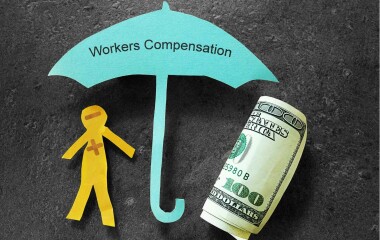An Occupational Injury Can Happen to Any of Us
If you suffer an injury while performing work-related duties or in direct connection with your employment, it is essential to understand both your obligations and rights. One of the employee’s legal obligations in the event of a workplace injury is to promptly notify the employer of the injury and the circumstances under which the incident occurred.
Employee’s Legal Obligation to Report a Workplace Injury
A workplace injury can happen to anyone. If you suffer an injury while performing your job duties or in direct connection with your employment, it is crucial to understand your legal obligations and rights. As an employee, you have a statutory obligation to report any occupational injury to your employer without undue delay, provided your health condition allows it. This obligation arises from the Labour Code and is in your best interest. Failure to report a workplace injury may significantly complicate the process of having the injury officially recognized and can negatively affect your right to compensation.
What Is an Occupational Injury?
An occupational injury is defined as a physical injury or death that occurs while performing work-related tasks or in direct connection with such activities. This also includes incidents occurring while carrying out tasks for the employer, even without explicit instruction.
Examples of occupational injuries:
-
Injuries occurring during working hours while performing assigned duties
-
Injuries sustained during business trips
-
Injuries suffered during training organized by the employer
Not considered occupational injuries:
-
Injuries sustained while commuting to or from work (except during business trips)
-
Injuries caused intentionally by the employee
-
Injuries that occur during personal activities unrelated to work duties
How to Report a Workplace Injury
1. Immediate Steps After the Injury:
-
Seek medical attention: Get medical help immediately, even if the injury seems minor. A medical report serves as key evidence.
-
Inform your supervisor: Notify your direct supervisor or another responsible person as soon as possible. If you're unable to report the injury yourself, a witness or family member may do so on your behalf.
-
Describe the incident: Clearly state the location, time, and circumstances of the injury — what you were doing, how the injury occurred, and who witnessed the event.
2. Formal Notification:
-
Entry in the accident register: Insist that your injury is recorded in the employer’s official accident book.
-
Accident report: For more serious injuries (e.g. incapacity exceeding 3 days or hospitalization over 5 days), the employer must complete an accident report using the prescribed form. Cooperate in this process and provide all necessary information.
-
Request documentation: You have the right to receive copies of the accident report and any related documents.
3. Supporting Evidence:
-
Gather evidence: Take photos of the accident site and your injuries, if possible.
-
Secure witnesses: Record the names and contact details of anyone who witnessed the incident.
-
Keep all medical records: Preserve all documents relating to the treatment of your injury.
Employee Rights in the Event of a Workplace Injury
1. Right to a Proper Investigation and Documentation:
-
Your employer must thoroughly investigate and document the injury.
-
You have the right to have the injury reported to relevant institutions (e.g., labour inspectorate, insurance provider).
-
You may request that your employer take preventive measures to avoid similar incidents.
2. Right to Information:
-
You are entitled to regular updates on the investigation of your injury.
-
You have the right to access all documents related to your case.
-
You are entitled to be informed about the findings of the investigation and the labour inspectorate’s conclusions.
3. Right to Compensation:
If your injury is recognized as an occupational injury, you may be entitled to the following compensation:
-
Compensation for loss of earnings during temporary incapacity for work
-
Compensation for pain and suffering / loss of amenity
-
Reimbursement of reasonable medical expenses
-
Compensation for material damage (e.g., damaged clothing, equipment)
-
Compensation for permanent loss of earning capacity (if long-term consequences arise)
Practical Tips for Employees
-
Do not delay in reporting the injury: Even seemingly minor injuries can have serious consequences later. Always report them promptly.
-
Document everything in writing: Communicate with your employer in writing (email, registered letter) whenever possible.
-
Get examined by a doctor: Even if you feel fine, let a medical professional assess your condition.
-
Do not act under pressure: Do not be persuaded to keep the injury unreported or to classify it as a general illness.
-
Consult an expert in complex cases: Seek legal advice if the employer disputes the injury or in case of complications.
Advice from Employee Rights Lawyers
Reporting a workplace injury is not only your duty, but above all a critical safeguard for your rights. Following the correct procedure for notification and documentation is key to securing fair compensation and legal protection. Do not be intimidated or discouraged — your health and rights matter.
Remember, the law is on your side and provides several tools to protect your interests. Use them wisely and avoid forfeiting your claims due to formal errors in the notification process.
Contact Employee Rights Legal Support
📞 Phone: +420 773 014 007
📧 Email: info@pravozamestnance.cz
🏢 Online Contact Form
🌐 Social Media: Instagram, Facebook, LinkedIn
We defend and enforce employee rights. We aim to improve working conditions in the Czech Republic and support you in handling workplace injury claims. For news, legal tips, and guidance, follow our blog section or connect with us on social media.





